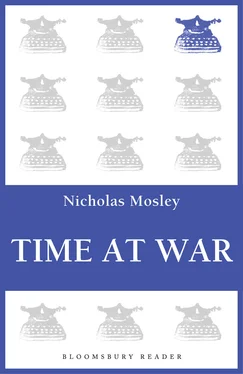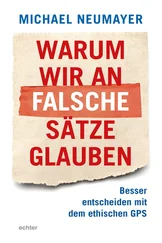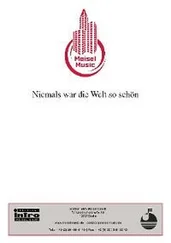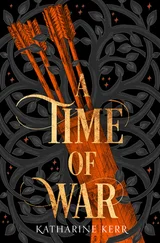I remained in the army working at Hounslow for another year. During this time I did not in fact feel that I had much responsibility. It was still ordained that I should travel on the Underground out and back each day. In the evenings, among those with whom I behaved irresponsibly it could be accepted that I was still involved in some hangover from the war.
At weekends I would go to stay with my father, who was now out of politics as well as house arrest and was leading the life of a country gentleman in Wiltshire. When I had first arrived home, landing off the troopship at Liverpool, I had gone straight to my sister Vivien who was still with her friends Rosalind and Rosie in a flat off Knightsbridge. Then, late that night we had driven down to my father and Diana, who were waiting up to welcome me with cups of tea and snacks. There was so much that might be talked about that I at least could hardly talk at all; I wondered if I would ever be able to talk about the war. This was my family and had been my home; but it did not seem, however my war ended, that I would be able to settle here again.
When I was working in Hounslow and went to stay with my father at weekends, we chatted easily enough about our shared philosophical and literary interests; but our conversation did not have the same intensity as our letters had had in war. I remained perhaps closer to my sister Vivien, who set up her own establishment in the country with our brother Micky and our old nanny. When Mervyn Davies came home shortly after me, I introduced him to Vivien and hoped they might form some relationship, but, I suppose inevitably, nothing came of this. When Mervyn got out of the army he resumed his studies in law, on his way to becoming a QC and then a judge. We still see each other at intervals to have lunch.
My friends in the Far East wrote that they were having a fine time running a local radio station through which they could broadcast their poetry. And they were sharing a mistress. Affectations of homosexuality seemed to be being blown away by peace.
I discovered that there was a way by which I could get out of the army earlier than I had expected. Shortly before I had joined up in 1942, I had taken a scholarship exam for Balliol College, Oxford; I had done little work for this knowing that I would be going off to war. But Balliol had said I had done well enough for them to keep a place for me if later I wanted it. And now it seemed that if I chose to take up this offer I could be demobilised by October 1946 rather than almost a year later. This I did. I wanted to read philosophy — to continue in a more disciplined manner my efforts to understand, among other things, why humans seemed to be at home in war, but refused to acknowledge this and thus were unable to deal with it.
When I got to Oxford, however, I was told that this was not what philosophy was about. The ancient Greek tragedians, yes, had been interested in such questions, but they came under the heading of Classics. The Existentialists? Nietzsche? They did not ‘do’ these at Oxford. What did they do? Descartes, Hume, Kant: Epistemology, the Theory of Knowledge: what do we mean when we say that we ‘know? But was not this what Nietzsche was on about? Was it? But I had always felt that I would have to work things out for myself.
I stayed at Oxford for just the year I would otherwise have been in the army. Then I left to write my first novel. If academic study insisted on dealing with only the bones of theory, then surely it was up to novels to portray the flesh of life. Also, I left Oxford to marry Rosemary, my eventually chosen rose from the rosebud garden of girls.
I had first noticed Rosemary at one of the innumerable fashionable dances in London. It seemed she had noticed me. But we had been wary: if one pounced conventionally, surely any quarry worth catching would have to try to get away? So how, in fact, when it came to it, did one pick and choose? One waited for some sign, some singularity, some jungle test like that of a smell?
I bumped into Rosemary again some months later in a coffee bar in Oxford. I said, ‘Do you remember me?’ She said, ‘Yes.’ said, ‘Good.’ She said, ‘I thought you were that murderer.’ There was a murderer on the loose at the time who was said to chop up women and dissolve them in the bath. I thought — Well this indeed is a singular signal that one can hardly explain; but might it be what is required?
I took her out to dinner. She hardly spoke. I rattled on. After a time I said, ‘What are you thinking She said, That I could send you mad in a fortnight.’ I said, ‘Why wait a fortnight?’ I went out to where my car was parked and I gave her the keys. I lay down in the road where she could run over me. She said she did not know how to drive. I got up to show her. Then we drove back to her lodging. By the end of the evening I think we both thought we might marry.
The next weekend I suggested we go in my car for a drive in the country. She asked if we could visit her old grandmother who lived in Hertfordshire. I said — Of course. I had the impression that Rosemary’s family must be hard up, for in spite of her presence at London dances she appeared to have no money for bus fares and to possess no smart clothes. On Sunday we drove through country lanes and eventually came to the gates and lodge of a drive leading to what must be a large country house. An old lady came out from the lodge to open the gates. I wondered — This is her grandmother? The old lady waved us on. We drove through what seemed to be endless acres of parkland and came to a long low house like a battleship. We went in through a back door and along stone passages where all life seemed to have stopped; then through a baize door to a small sitting room, outside which Rosemary asked me to wait for a moment. Then when I went in there was a very old lady in a wheelchair who, when her granddaughter had introduced me, said, ‘And I was such a friend of your grandfather’s!’
I still had no idea who this lady could be who had been a friend of my grandfather George Curzon. (I managed a bit later to glimpse an envelope lying on a desk addressed to ‘Lady Desborough’.) She asked Rosemary if I would like to see what she referred to as ‘the paintings’. She gave Rosemary a huge old-fashioned key and we went down a central corridor of tattered grandeur and into a long high picture gallery where, when Rosemary had opened a creaking shutter, there appeared — through cobwebs — a Van Dyck? An Italian Renaissance Holy Family? A huge portrait of a soldier on a horse that could be — surely not! — a Rembrandt? (Rosemary said — ‘Yes, they say it is.’) I thought it important that I should not appear to be bowled over by all this. Why should it not be as natural as anything else? But it seemed more likely than ever that we would marry.
*
So this was peace. But there still seems to me, sixty years later, to be a problem of how to write about war. From the complexities of peace you can produce an artwork. From the simplicities of war — can you portray in one breath both heroism and horror?
People are not supposed to write about their successful exploits in war: this is considered to be bad form. And about the exploits of others — well, this is easier to write when they are dead. There is a whiff of immature triumphalism in stories about successful killing — unless one has paid the price of being killed oneself. Good stories were able to be written about the First World War because then the whole absurdity could be seen as just horror, a senseless disaster. But the Second World War had not been like this — had it? It was held to be just and right. And yet there were the horrors, the disasters. There are very few good accounts of the fighting in the Second World War — one of them, as I have mentioned, is Raleigh Trevelyan’s The Fortress about the landing at Anzio. A good story about the Second World War has to comprise a way of writing about the horror and the rightness, the misery and the satisfaction, the evil and the good, all in one. Not a problem for epistemology? No?
Читать дальше












